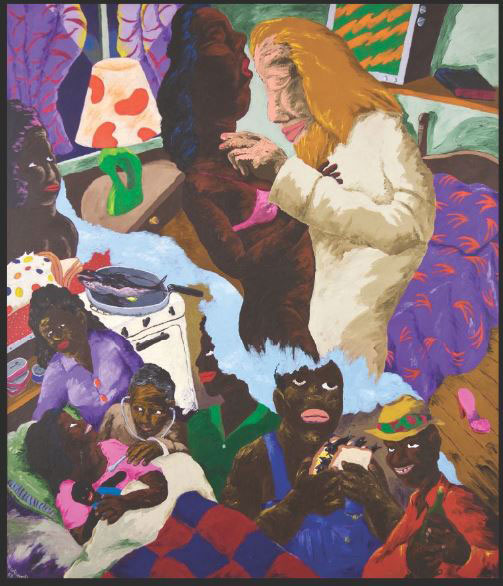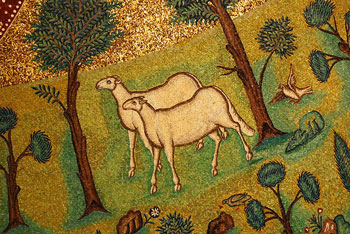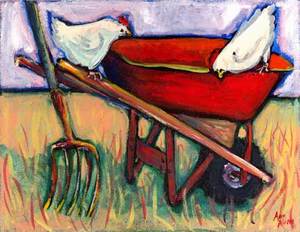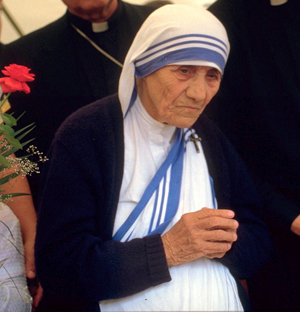
Excerpts of a sermon preached at Grace Church. Bainbridge Island, Washington, March 16, 2003. Sermon from Matthew 16:21-28
"The words we hear from Jesus this morning come from the mouth of a man who grew up under the heel of an empire. And who saw, all around him, its cost. The Romans saw themselves as creating “a new world order.” To accomplish this, Roman soldiers burned villages, pillaged the countryside, slaughtered or enslaved those they conquered. Huge taxes were imposed on the people in the colonies. When the Roman governor Antipas built two Roman-style cities in Galilee, a rural countryside, the Galileans had to provide the resources for this massive building project. They paid a tax unto Caesar.
".. We know beyond a doubt that Jesus chose not to identify with those in power.
"Instead, this is how Jesus spent his time. Just before the section of the gospel we just heard, Jesus took a blind man by the hand and restored his sight. He fed a crowd with loaves and fish. He helped a deaf and mute man find his voice again. And, my favorite, he listened when a Gentile woman begged him to heal her daughter of demons. He bound himself to those in need. He did not even exclude persons who were collaborators with the empire: i.e. the tax-collector, Matthew. This is not an easy kingdom, folks.
"..We can say, from these stories, that Jesus was moved by compassion.
"I want to suggest to you a few ways of looking at compassion. First, it’s not a form of sympathy.
"Compassion, as you know, means to suffer with: to enter into another’s suffering. And that’s quite a way to go. But let’s take it a step farther. The theologian Walter Brueggemann calls compassion, ‘a radical form of criticism,’ a radical form of criticism for it announces that, ‘the hurt is to be taken seriously, that the hurt is not to be accepted as normal and natural but is an abnormal and unacceptable condition for humanness.’
"Jesus in his compassion says that the hurt of those who are hungry and poor, and taxed beyond their means is to be taken seriously: It is not normal for people to be without food; it is not normal for someone who is blind or deaf to beg on the street. But, ‘Empires are never built nor are they maintained on the basis of compassion…’ Empires, like Rome, like the United States, live by keeping their own citizens distracted with ‘bread and circuses.’ The Roman rulers expected their citizens to remain silent in response to the human cost of war; mute in the face of the human cost of greed. And they kept those in the colonies in check by systemic terror: the price of the prophetic witness of John the Baptist was death. But Jesus speaks up. He acts. By and through his compassion, he takes the first step in revealing the abnormality that has become business as usual.
“Thus his compassion is …a criticism of the system… that produces the hurt. Finally Jesus enters into the hurt and comes to embody it.
"When it comes right down to it, it seems to me that Jesus invites us this morning to follow where compassion leads us, and bear the cost of what we find. Jesus asks us to follow where truth leads us, and to bear the cost of the truth we find.
"He calls us, as Nicholas Cage says in the movie Moonstruck, “to ruin our lives, to break our hearts, to love the wrong person and to die.” We are invited to ruin the old life of silence, to break our hearts with compassion over suffering, to love the wrong person–that would be Jesus–and to die. As Bill said to me last week, “ to get resurrected ya gotta get dead.” Because we know, from Jesus’s example, and from our own lives, what lies on the other side of that death. The other side of silence and distraction , of the deadly life of business as usual, is new life, resurrected life, born of compassion-awake and broken-hearted, and, yes, dangerous."
Nora Gallagher is author of the two memoirs, Things Seen and Unseen and Practicing Resurrection and editor of the award-winning "Notes from the Field." Her essays, book reviews, and other writings have appeared in many publications including the New York Times Magazine, Utne Reader and the Los Angeles Times.










